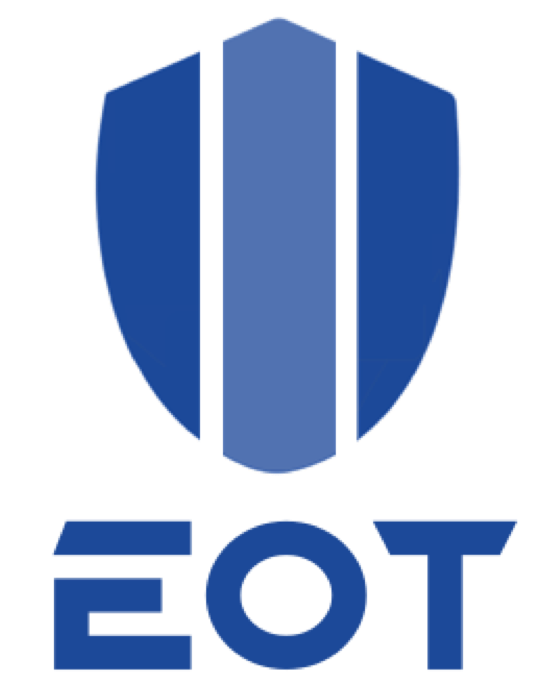- marketing admin
- Articles
Navigating the Horizon: Future Trends in Blockchain Technology for IIoT
The convergence of Blockchain technology and the Industrial Internet of Things (IIoT) holds immense promise, reshaping the landscape of industrial processes and ushering in a new era of connectivity, transparency, and efficiency. As we look toward the future, several trends are poised to shape the evolution of Blockchain in the IIoT domain. This article explores these emerging trends and their potential impact on industrial operations.
Interoperability for Seamless Integration:
- Future Blockchain solutions for IIoT will focus on enhancing interoperability, allowing diverse devices and systems to communicate seamlessly. Standardization of protocols and the development of open-source frameworks will facilitate the integration of Blockchain into existing IIoT infrastructures. This trend ensures that the benefits of Blockchain, such as decentralized data management and secure transactions, can be harnessed across various industrial platforms.
Scalability Solutions to Meet Industrial Demands:
- As the scale of IIoT deployments continues to grow, scalability becomes a critical consideration. Future trends in Blockchain for IIoT will witness the development of scalable solutions, capable of handling the vast amounts of data generated by interconnected devices. Innovations such as sharding and sidechains will enable Blockchain networks to expand efficiently, ensuring that they can support the increasing demands of industrial ecosystems.
Enhanced Security with Quantum-Resistant Algorithms:
- With the looming threat of quantum computing, the need for quantum-resistant cryptographic algorithms in Blockchain technology becomes imperative. Future trends will see the integration of post-quantum cryptography to fortify the security of IIoT systems. This proactive approach ensures that as quantum computing capabilities advance, industrial data remains secure, and the integrity of Blockchain-based transactions is preserved.
Convergence of AI and Blockchain for Intelligent Insights:
- The synergy between Artificial Intelligence (AI) and Blockchain will be a hallmark of future trends in IIoT. AI algorithms will leverage the transparent and tamper-resistant nature of Blockchain to analyze data integrity. This convergence will enable intelligent insights, predictive analytics, and optimized decision-making within industrial processes, enhancing overall efficiency and reducing downtime.
Tokenization of Assets and Smart Contracts:
- The future of Blockchain in IIoT will witness the widespread adoption of tokenization, allowing physical assets to be represented digitally on the Blockchain. This enables more efficient tracking of assets, streamlined supply chain management, and improved transparency. Smart contracts, self-executing contracts with coded terms, will automate and enforce agreements, reducing the need for intermediaries and expediting transaction processes in the industrial realm.
Energy-Efficient Blockchain Protocols:
- Acknowledging the energy-intensive nature of some Blockchain protocols, future trends will prioritize the development of energy-efficient alternatives. Green Blockchain solutions will emerge, employing consensus mechanisms that minimize energy consumption without compromising security. This shift addresses sustainability concerns, making Blockchain more environmentally friendly and suitable for widespread adoption in energy-conscious industrial sectors.
Decentralized Identity Management for Enhanced Security:
- Identity management is a critical aspect of IIoT security, and Blockchain offers a decentralized approach to this challenge. Future trends will witness the integration of decentralized identity solutions, empowering individuals and devices with self-sovereign identity. This enhances security, privacy, and control over personal and device-related information, reducing the risk of unauthorized access and data breaches.
Regulatory Compliance and Governance Frameworks:
- As Blockchain applications in IIoT become more prevalent, regulatory bodies will play a crucial role in shaping the industry’s future. The development of robust governance frameworks and compliance standards tailored for Blockchain in IIoT will provide a clear roadmap for industries, fostering trust among stakeholders and ensuring ethical and legal use of the technology.
Edge Computing Integration for Real-Time Processing:
- To address latency concerns in industrial processes, future trends will witness the integration of Blockchain with edge computing. Edge devices, located closer to the data source, will process transactions in real-time, reducing latency and enhancing the overall responsiveness of IIoT systems. This integration ensures that Blockchain benefits, such as secure and transparent transactions, can be realized without compromising speed.
Cross-Industry Collaborations and Consortia:
- Recognizing the potential for cross-industry collaboration, future trends will see the formation of Blockchain consortia. These collaborations bring together diverse stakeholders to develop industry-specific standards, share best practices, and collectively address challenges. Cross-industry collaborations foster innovation, accelerate adoption, and create a robust ecosystem for Blockchain in IIoT.
As Blockchain technology continues to mature, its integration with the Industrial Internet of Things is set to redefine how industries operate and manage their processes. The future trends discussed above signal a transformative journey towards greater interoperability, scalability, security, and efficiency. From the convergence of AI and Blockchain to the tokenization of assets, these trends represent the evolving landscape of Blockchain in IIoT, shaping a future where transparency, trust, and innovation converge to propel industrial processes into a new era of connectivity. As industries navigate this dynamic landscape, the strategic adoption of these trends will undoubtedly play a pivotal role in unlocking the full potential of Blockchain technology in the Industrial Internet of Things.



